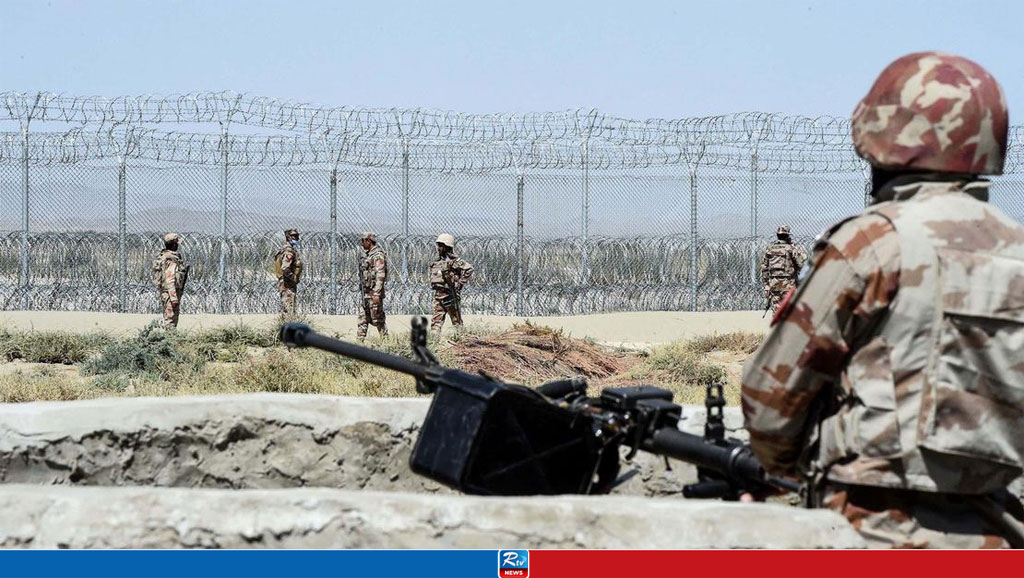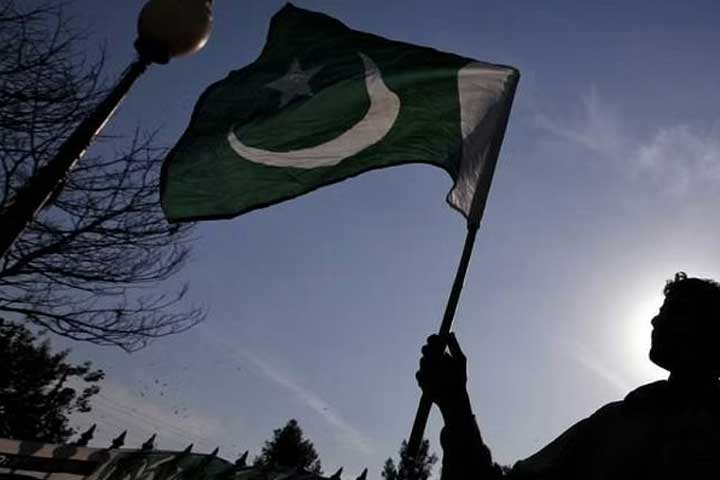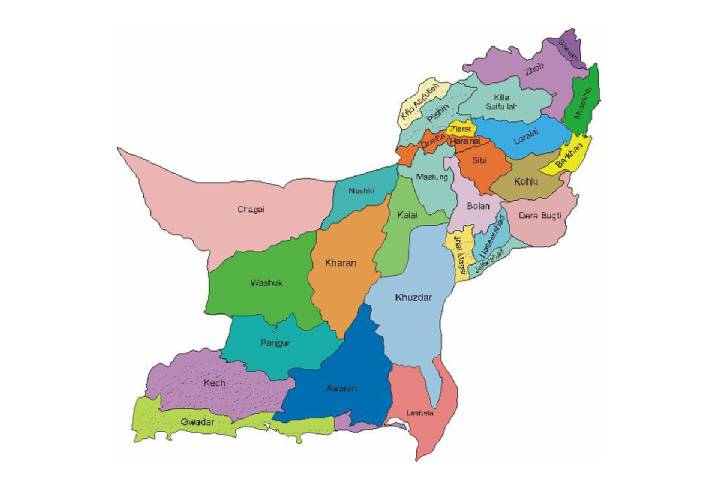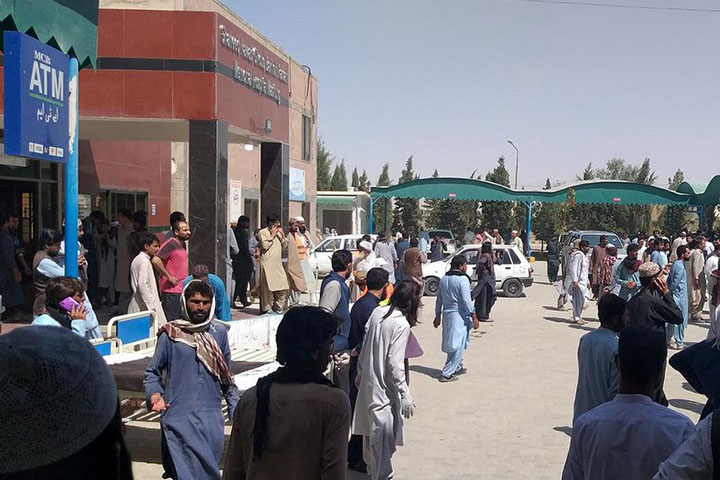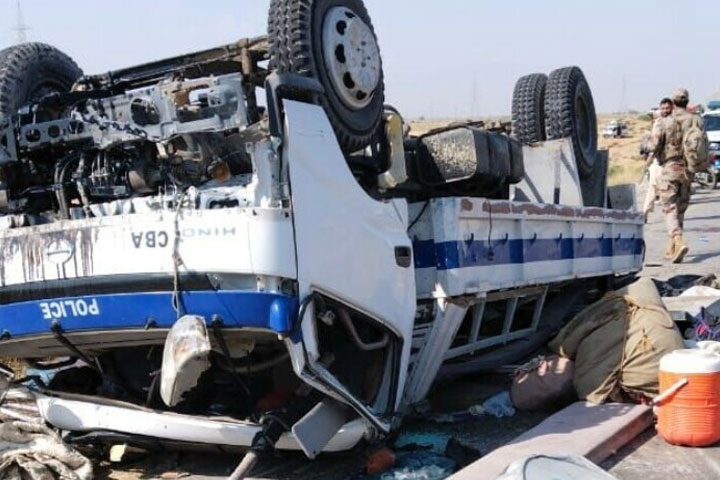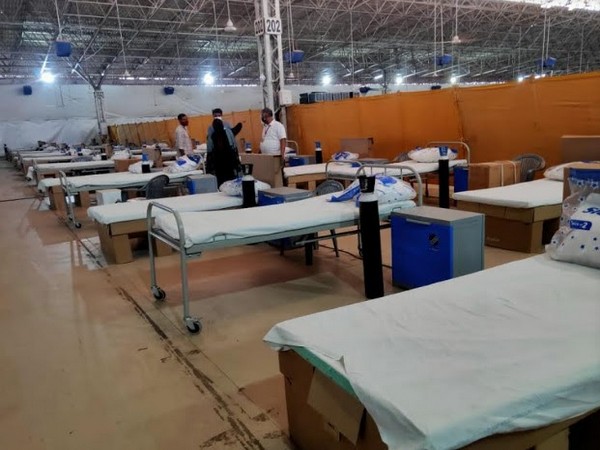Pakistan: Massive protests erupt in Balochistan
Large-scale protests have erupted across Balochistan after an alarming rise in cases of extrajudicial killings and enforced disappearances spanning different demographics in the region, the Human Rights Council of Balochistan (HRCB) stated in a report.
Notably, the month of November witnessed an alarming rise in cases of human rights violations throughout Balochistan.
65 incidents of enforced disappearances were recorded, spanning different demographics from under-age to disabled persons, newlyweds, students, doctors, shopkeepers, and labourers. 39 extrajudicial killings were reported, including 10 previously disappeared persons killed by state forces in fake encounters.
Throughout the month, Balochistan witnessed a tragic toll with the loss of 39 lives, including five women, in various incidents. While 30 of the victims have been identified, the identities of 10 remain unknown.
One of the most disturbing occurrences that triggered widespread outrage and protests was the extrajudicial killing of ten Baloch students, previously reported missing but later killed by the CTD in a series of fabricated encounters, HRCB reported.
The first incident occurred on November 8 when CTD officials claimed the killing of three militants in an alleged exchange of fire in Khuzdar, with a significant cache of ammunition supposedly seized.
However, investigations revealed disturbing details, including the identification of one victim, Aftab Sumalani, who previously disappeared by forces from Hazarganji Quetta on August 11. Another victim, Abdullah, had been detained and disappeared by Pakistani forces two years prior, while the third victim, Hamza, also had a history of disappearance.
Later, on November 19, police brought three more bodies to the Hoshap police station, claiming they were victims of a car explosion. Upon identification, it was revealed that these victims, Nabi Bakhsh, Adil Essa, and Shahjan Essa, were students who had been forcibly disappeared on August 22, HRCB reported.
Then, on October 23, the CTD again transported four bodies to Teaching Hospital Turbat, alleging their deaths occurred in an encounter on Banuk Chadahi Pasni Road.
One of the deceased, Balach, a tailor at Star Plus market and a resident of Absar in Turbat, was detained by the CTD from his home on October 29 in front of his family. He was produced in the court on November 21, wherein, the court granted him a 10-day remand. During this period, his family met him, provided financial support, and witnessed legal proceedings, contradicting claims made by the authorities regarding his encounter death.
The other three victims were identified as Saif son of Umeed, also a resident of Absor abducted on August 1 from his grocery shop, Shakur of Noor Jan, from Pulabad Kasano area of Tump abducted on June 25, and Wadood, son of Mubarak, a resident of Panjgur abducted from Army Camp on April 27 after being summoned.
These incidents led to widespread protests in most parts of Balochistan where people from all walks of life joined the victims’ families against the long-standing systematic violence and ethnic targeting of Baloch people by the state through inhuman practices such as enforced disappearances and extrajudicial killings, HRCB reported.
However, despite peaceful protests, the forces responded with lethal measures by beating and disrespecting the protesters and creating hurdles for the marchers.
Moreover, further casualties during the month included nine individuals reportedly killed by the FC, two of whom were identified as separatists, while seven others died in an alleged encounter in Zhob.
A person named Shoaib, son of Abdul Hameed, a Zamyad driver lost his life in firing by the forces.
Furthermore, a woman fell victim to indiscriminate firing by SHO Noshki, Asadullah Mengal, which led to local protests against the continued violence by the police authorities.
In another incident, six people were shot dead in targeted killings by unknown militants, five by Baloch militant organizations, and four people by the local death squad operatives, including journalist Sharif Shahzad, known for his reporting on a previous incident of violence against a woman by a death squad member in Nal, Khuzdar., HRCB reported.
Other distressing incidents included the honour killing of a man and woman by the victim’s husband after which the two decomposed bodies were recovered in Mastung and Harnai.
Enforced disappearances carried out by the paramilitary forces of Pakistan marked a troubling trend with sixty-five documented cases in the past month, predominantly from districts Kech, Awaran, and Gwadar. This affected a wide range of people, from minors to the disabled, from newlyweds to students, shopkeepers, and labourers.
The report added that the incidents involving underage abductions were particularly alarming.
In Wadh, Abdul Qadeer and Salahuddin — mere teenagers aged 13 and 14 — were forcibly taken away from Syed Momin Shah Mosque by Pakistani forces.
Similarly, Amjad in Ormara, an 11-year-old went missing after protesting against land mafias. Bilal, a 16-year-old from Gwadar, forcibly disappeared for the second time from his home. All of them were students, HRCB reported.
In another incident, nine other students were abducted across various districts. They were identified as Abdul Wahab, Shahid, Ali Juma, Imdad, Sheeran, Jameel, Sherdil, Ahmed Ibrahim, and Sameer, who were forcibly whisked away from his hostel. While Imdad, Sherdil, and Ahmed Ibrahim were eventually released, the rest remain missing.
In instances involving disabled persons, Atwar disappeared during a military raid in Sibi. Notably, a brother of his had previously been killed by the Pakistan Army.
The abduction of bridegrooms also stood out among the distressing incidents which reflects the callousness even during personal celebrations, as per the report.
Liaqat, preparing for his wedding ceremony in Khuzdar, was whisked away by Pakistani forces a mere two days before his marriage. Similarly, Sibghatullah Sarpara, a shopkeeper, was abducted just a day after his marriage from Chaghai. It should be noted that in 2012, the father of Liaqat, Sakhi Dad was killed by a state-backed death squad group.
In various incidents across district Awaran, security forces carried out multiple abductions, forcibly taking away fourteen people, including Gazzin, Hasil, Barkat, Hafiz Azeem, Muhammad Qasim, Akram, Lal Jan, Shahnawaz, Javed, Sajid Zabad, Mahdmood, Rahim Jan, Akhtar, and Muhammad Ameen, who is being disappeared for the third time, HRCB reported.
Hafiz Azeem, Muhammad Qasim, Akram, and Sajid were later released, while others remain missing. Noorbakhsh, Akhtar’s brother was shot dead on 8 November by the Counter Terrorism Department (CTD).
Similar abductions occurred in district Kech, where twelve people were detained and then disappeared. The victims include Noman, Saeed Ahmad, Wajo Salim, Allahdad, Adnan, Liaqat, Samad Assa, Muslim Ali, Mansoor, Waqar, Gulzar, and Miraj, whose father was found dead in custody in Karachi after being abducted in 2012.
Only Adnan has been released among these people, and this marks the second abduction of Muslim Ali.
The report further highlighted that the forces carried out a series of detentions and disappearances in district Gwadar and surrounding areas.
Salim Raza, Razzaq Saud, and Amjad were abducted from Pasni, while Habib from Naiyaabad, Sameer Hamza from Surbandan, and Amjad from Ormara. Two persons were detained and disappeared from Khuzdar. Liaqat, son of Saleh Muhammad was taken away from his retail shop in Zehri, while another individual, named Haroon Baloch faced a similar fate but was later released.
In Quetta, a series of raids conducted by the security forces involving Frontier Corps (FC), CTD, and intelligence agencies led to the disappearance of three youths – Attaullah, Hamza, and Bibagr. Hamza and Bibagr were brothers working as laborers.
All of them were eventually released on November 10. In a separate incident, Jamal Marri, son of Gul Khan Marri, was apprehended by CTD in a raid in the New Kahan area of Quetta and subjected to enforced disappearance.
One person, namely Kaleemullah, son of Abdul Hakeem Shahwani, was detained by FC and plain-clothed intelligence officers from the Khadkocha area of Mastung and disappeared.
In the Sui area of Dera Bugti, six people were abducted by the security personnel. The victims were Jalab, Laik, Bhagia, Laeek, Muhammad, and Meeran Bugti. Two of Meeran’s sons had been killed by a local death squad a few years ago.
Moreover, one person, Qaiser son of Ghazi Khan, was taken into custody and forcibly disappeared by the forces from Naseerabad. Although Mohammad and Meeran were abducted in October, we received information about their cases only this month due to internet unavailability.
The report further cited an incident where three people were abducted from Sindh. Latif, son of Bacha and a resident of Sibi Lehri, was forcibly disappeared by Pakistani forces and intelligence agencies from the Larkana area. He had migrated to Sindh and was working there. Similarly, Hasnain Baloch was apprehended and then disappeared by the forces from the Lyari area of Karachi while traveling.
Moreover, Muhammad Ismail was abducted from his Karachi home by unknown persons but returned safely after eight days, HRCB reported.
Source: ANI
16 Dec 2023,23:05
















 Live Tv
Live Tv
